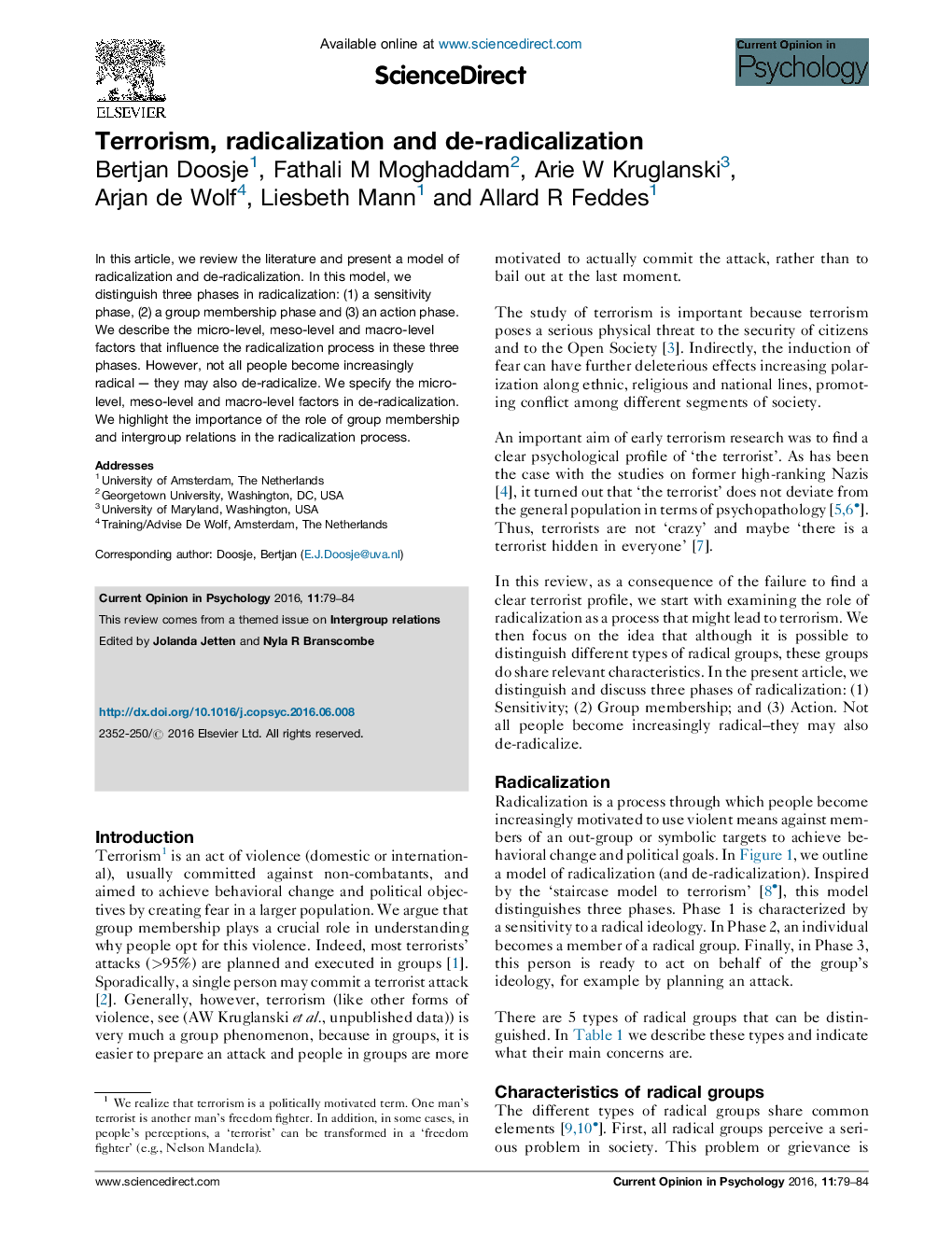| Article ID | Journal | Published Year | Pages | File Type |
|---|---|---|---|---|
| 879248 | Current Opinion in Psychology | 2016 | 6 Pages |
•A model of radicalization and de-radicalization is presented.•We specify the main characteristics of radical groups.•We outline the micro, meso and macro factors in radicalization.•Group membership and intergroup relations play crucial roles in radicalization.
In this article, we review the literature and present a model of radicalization and de-radicalization. In this model, we distinguish three phases in radicalization: (1) a sensitivity phase, (2) a group membership phase and (3) an action phase. We describe the micro-level, meso-level and macro-level factors that influence the radicalization process in these three phases. However, not all people become increasingly radical — they may also de-radicalize. We specify the micro-level, meso-level and macro-level factors in de-radicalization. We highlight the importance of the role of group membership and intergroup relations in the radicalization process.
